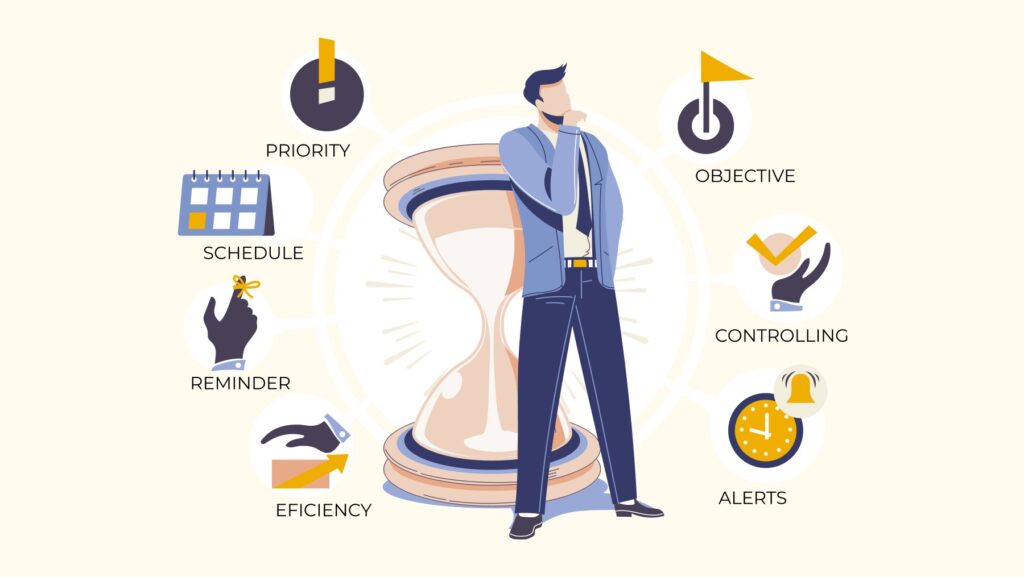The Role of a Technical Project Manager
Contents:

What do project managers manage?
Someone must be in charge for every new project that begins in an organization. Between the shifting, deadlines, tasks, and workers, there’s a lot to handle. It would be inconvenient and chaotic to keep track of everything for a manager and a team.
A project manager is every organization’s savior. They act as a bridge between the clients and employees, between the manager and the employees and in charge of any other vertical or horizontal communication channels within the various teams involved.
Project Managers are in charge of project planning and management for a company’s objectives. They are in charge of communicating with company executives as well as the clients. They ensure that projects are executed according to specifications, on time, and within the allocated budget.
Project managers apply their industry knowledge to help with project planning and resource management in all aspects. The conception, development, and implementation of these initiatives are all dependent on them. They also take care of project planning, scheduling, timetable maintenance, execution, and budget management.
Finally, a project manager must be able to effectively manage their team. As a project manager, you may need to inform someone that they are behind schedule, or that they are doing an excellent job. A project manager will work closely with his team, and his or her success will be solely dependent on their efforts. Skills of a technical project manager and a conventional project manager are, for the most part, interchangeable. Let’s look at the additional skills required to be a technical program manager.
What skills are needed to be a TPM?
A Technical Project Manager is an organization’s lead subject matter expert. They will also hire and train extra support staff in a company’s IT department. To adequately support these initiatives, they must be trained in and understand related technologies and architectures. The role of a technical project manager is to create a vision, then build, and manage, all areas of the project.
The basic tactics and intrinsic responsibilities of a technical project manager can be used in a variety of ways depending on the organization. They have more technical knowledge than just program managers, and their expertise is now a necessity. Technical project managers also have much more work because IT is a time-consuming and knowledge-based field.
Typically, their responsibilities include more than just supervising the programming staff. To answer complex inquiries and positively contribute to problem-solving, they will require a thorough understanding of the project and the product they are working with. Since they know exactly what is to be done, they also train new employees and streamline tasks effectively as per their technical expertise.
In contrast, a project manager can apply their general management and organizational skills to make their project successful. However, technical project managers will also need to have a good understanding of the systems in use. Moreover, TPMs are solution oriented, and they are responsible for long term planning for the client according to their requirements.
This is done to ensure that no changes are required towards the end of the project. TPM’s and their technical expertise is what makes them unique. The abilities of a technical project manager will determine whether or not they are hired for the post. Moreover, with the help of a technical project manager, the client and the firm may ensure that the current information about their specific software or project technology is accurate, relevant, and up to date.
Is a Technical Project Manager preferred?
It will be a win-win situation if project managers are knowledgeable with hardware and software installation, upgrades, site maintenance, and, preferably, programme and app creation. The feasibility of project proposals must also be reviewed and validated by project managers. A project manager is well-versed in all of the project’s processes, but they are rarely involved in their execution. Instead, they organize personnel assigned to specific tasks by communicating with them about deadlines and ensuring they have everything they require.
Communication is one of the most important abilities for a project manager. They must also ensure that all information is conveyed in a timely and effective manner. The skills of a technical project manager and traditional project managers are nearly identical. According to the US Department of Labor, between 2012 and 2022, organizations across the country will create more than 50,000 jobs for technical project managers.
Technical project managers are clearly in high demand. But what does a technical project manager do? Technical project managers are high in demand: regardless of the industry, qualified specialists are always needed to plan and manage projects. The Project Management Institute expects 22 million new project management job openings through 2027.
There has been a high demand for technical project managers with software development skills that are required for organizations to meet their strategic objectives. Moreover, technical project managers are a requirement for almost every industry now. Their expertise is not only limited to tech related films, but also required in the business sector, gas and oil, insurance, manufacturing, finance, construction, and other industries globally.
They are solution oriented and tend to identify root causes of problems and effectively fix them. TPMs must also be able to provide clear, succinct status reports and updates to organizational partners, executives, and stakeholders who are not necessarily tech savvy. Since they are the middle-man between the team and the client, they are able to effectively make improvements to the project based upon the client’s feedback. They develop upon the client’s points and make required changes.
Certifications required to be an efficient technical project manager
The expertise of information technology systems clearly differentiates TPMs as “technical,” and as such, it is the most important talent for any technical project manager to have. IT project managers work in a world of arcane technologies, rapid change, and the challenge of demonstrating value to management.
Project outcomes are frequently more than just the creation of a physical asset for the organization; they are also the establishment of systems with ultimate delivery. Below mentioned are a few of these skills that are required of TPMs. They are required to have clear and accurate communication skills. The TPM’s intelligence, know-how, and eagerness to understand are communicated through the use of appropriate language, idioms, and terminology.
These kinds of communication abilities motivate IT personnel to go above and above in return. Moreover, they are expected to have a set of leadership skills. The TPM can serve as a subject matter expert in a critical process and is eager to answer inquiries about it. They can help project team members use the project management process to leverage their own technical skill set toward relevant goals by providing coaching.
The TPM should also be conversant with current IT platforms and techniques, as well as how a certain project will satisfy the business’ goals. For example, if the project includes SSD storage and an in-memory database, the TPM should understand what benefits this will bring to the organization and how it differs from petabytes of storage for “big data” analysis.
TPMs should also be in touch with agile scheduling skills. Lastly, even if a project is a minor or isolated element of the larger picture, the TPM should have access to the company’s IT roadmap. Understanding the company’s technological beliefs and aims, as well as how the present project life cycle may influence future directions. Qualifications and certifications such as Project Management Professional, CompTIA Project+ certification, and PRINCE2 Foundation may be beneficial to technical project managers.
This is because TPMs rely on technical competence to objectively assess the feasibility of intended project objectives and align them with organizational capabilities and constraints. The TPM should be known for making difficult, well-informed judgments as this will assist them in gaining management and technical contributors’ trust. For example, the decision of either using native or cross platform for mobile app development is for the technical project managers to make.
Why should you hire technical project managers?
Another significant factor to determine a client’s satisfaction and a project’s success is the quality of work and resources used throughout the development process. A technical project manager also has to thoroughly keep in control the quality measures of the material, resources, services, and other factors that will determine the final output therefore the TPM has to have this expertise and skill as discussed above.
They are able to streamline the various communication channels, and bring life to a project with their skill set and personality traits. They are timely, have good interpersonal skills, have multitasking abilities and require little supervision. They make a manager’s or director’s job much easier by taking on the management roles, and leaving only the task of supervising for their seniors.
If you need a task done within an allotted time, and need someone with good managerial and technical abilities, a TPM will get the job done for you. They believe in vision and are task-oriented individuals who work tirelessly to ensure that a project is a success.
To conclude, technical PMs are project managers who also have experience in the industry or sector in which the project is being implemented in terms of IT. This enables them to better manage project completion, relate to and coach team members, and comprehend project demands and requirements. The roles of a PM and a TPM are very interlinked, with a few exceptions of specifications.











